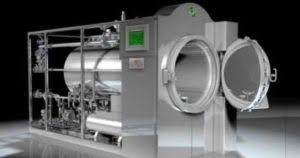The Ontario liquid cremation debate
 Since February 2018 there has been a moratorium on the installation and licensing of liquid cremation, also known as alkaline hydrolysis or water cremation, in the Canadian province of Ontario. At this point in time, according to this article from the Ottawa Citizen, the Wartman Funeral Home of Kingston is the only facility in the province licensed to cremate bodies using alkaline hydrolysis. They operate a “high temperature” alkaline hydrolysis method of the procedure.
Since February 2018 there has been a moratorium on the installation and licensing of liquid cremation, also known as alkaline hydrolysis or water cremation, in the Canadian province of Ontario. At this point in time, according to this article from the Ottawa Citizen, the Wartman Funeral Home of Kingston is the only facility in the province licensed to cremate bodies using alkaline hydrolysis. They operate a “high temperature” alkaline hydrolysis method of the procedure.
However, again according to the article, there are other funeral homes who are eager to see the moratorium lifted and offer the process to their clientele. Andre Pilon of the Pilon Family Funeral Home already owns a machine but is still waiting on a license to use it. He is quoted in the article, “People love the concept. So, it is frustrating. This has been accepted in many other states and provinces.”
As it turns out, it was accepted in Ontario for some time. However, something I did not know was that there are high temperature alkaline hydrolysis machines and there are machines that operate under low temperatures. The article points out that high temperature machines have been endorsed by the World Health Organization and are recognized as an acceptable method for the disinfection and disposal of human remains. According to the article they work by heating under pressure at temperatures up to 300 degrees F (150 degrees C).
What has caused the moratorium by the province of Ontario is a report from Public Health Ontario that “the low-temperature version of the alkaline hydrolysis machines show no scientific evidence that establishes that they destroy human prions – proteins that can transmit neurodegenerative diseases such as Creutzfeldt-Jakob disease.” According to the report, “More research on low-temperature alkaline hydrolysis is required before its effectiveness at disinfecting human tissues can be confirmed.” Lower temperature machines may only heat to about 208 degrees F (100 degrees C), but generally heat for a longer time period.
Ontario Registrar Carey Smith of Public Health Ontario is quoted in the article, “We have concerns that it does not effectively kill prions — that is the issue.” The moratorium is set to continue until the authority conducts a full review of the technology. Smith continued, “. . .at the end of the day, this is a public safety issue: We have to be assured it’s safe; we have to be assured that everyone is OK with it going into the waste water system.”
The report by Public Health Ontario has been entered into the evidence in a court case between the health authorities in Ontario and a funeral home that used low-temperature alkaline hydrolysis. That funeral home’s license was suspended last year, and remains suspended, and this referenced court case may very well determine the fate of alkaline hydrolysis in Canada.



















